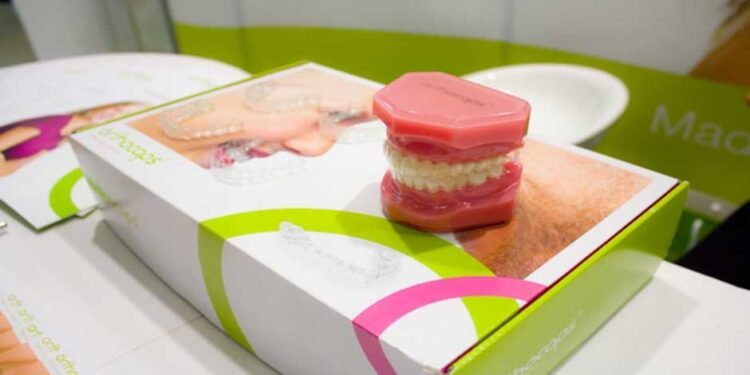Maintaining good oral hygiene is critical to general health and well-being. Good dental hygiene not only keeps teeth and gums healthy but also greatly helps to prevent major health problems. A comprehensive approach to dental hygiene guarantees not only the brightening of smiles but also the protection of long-term health. The six basic dental hygiene guidelines below will help greatly improve oral health.
Proper Brushing Techniques
Proper brushing technique is one of the most important parts of dental hygiene. A well-known rule is brushing teeth at least twice a day, although many individuals ignore the process itself. It is advised to use a soft-bristled toothbrush as it gently treats the gums and helps to eliminate plaque. Holding the toothbrush at a 45-degree angle on the gums is crucial, and instead of forceful back-and-forth strokes, employ soft, circular motions. This method minimizes the risk of gum irritation or recession while also helping to efficiently eliminate food particles and plaque. Moreover, brushing for at least two minutes is essential to guarantee complete cleaning of every tooth surface.
The Importance of Flossing
Flossing is a sometimes-forgotten aspect of dental care, although it is a vital habit for preserving oral health. Brushing cleans the surfaces of teeth; flossing gets to the narrow areas between teeth and beneath the gum line, where food particles and plaque can gather. If not corrected, this buildup can cause gum disease and cavities. It is imperative to wrap the ends around the fingers using around 18 inches of dental floss, giving a few inches to work with. Without damaging the gums, gently sawing strokes can assist in slipping the floss between teeth. To properly clean the sides of each tooth from trash and plaque, bend the floss around each one in a C-shape.
Rinsing with Mouthwash
Rinsing with an antibacterial mouthwash will improve dental cleanliness even further. In addition to freshening breath, mouthwash helps lower plaque and gingivitis, therefore adding even another layer of defense against oral bacteria. Choose a mouthwash with fluoride if you want one that will help to build tooth enamel and stop decay. Following the directions on the package is crucial; generally, they advise washing following brushing and flossing for thirty seconds to a minute. Especially in places that brushing and flossing can overlook, using mouthwash can help keep a clean and healthy mouth part of daily practice.
Regular Dental Check-ups
Maintaining oral health depends much on routine dentist visits and expert cleanings. Most people recommend at least twice-yearly dental checkups. These examinations allow for the early detection of diseases such as cavities, gum disease, and other oral health disorders that might otherwise go undetected. You can easily search for Invisalign near me in order to find a dentist that can offer specifics on how this option can fit into a regular dental care regimen. You can also get a thorough cleaning that removes tartar buildup, something brushing and flossing cannot ensure. This cleaning not only ensures the health of the teeth and gums, but it also helps to prevent gum disease and cavities. Discussing treatments such as aligners can benefit those who are considering orthodontic options.
Nutrition and Oral Health
Oral health and cleanliness depend much on nutrition, which affects everything, including gum condition and tooth strength. Many fruits, vegetables, whole grains, and dairy products combined in a balanced diet can supply vital elements supporting good teeth and gums. Maintaining healthy tooth enamel depends mostly on calcium and phosphorous; gum health depends on vitamin C. Foods strong in sugar and acidity could be bad for oral health as they encourage the growth of dangerous bacteria that might cause cavities and enamel degradation. Reducing the use of sugary snacks and drinks helps to choose better options that support dental health instead. Water is also very important as it helps eliminate food particles and germs, thereby improving the condition of the mouth and producing better breath.
Mindful Personal Habits
Personal practices can influence dental hygiene. Adverse consequences of smoking and using tobacco products on oral health have been demonstrated; gum disease, tooth loss, and even oral cancer have resulted. Reducing tobacco usage or quitting smoking will help to noticeably enhance general well-being and dental health. Moreover, practices like nail-biting or using teeth as tools could compromise the enamel and result in chips or fissures. Maintaining the integrity of teeth depends on awareness of such practices. Furthermore useful are stress-reducing strategies as stress can cause tooth grinding (bruxism), which over time wears down teeth.
Conclusion
Following this dental hygiene advice can help you open the path for a better smile and mouth. Maintaining proper brushing and flossing techniques, incorporating mouthwash into a daily routine, scheduling regular dental check-ups, eating a balanced diet, and being mindful of personal habits are all vital components of effective oral care. People can greatly improve their oral health and general well-being by acting early on toward improved dental cleanliness.












